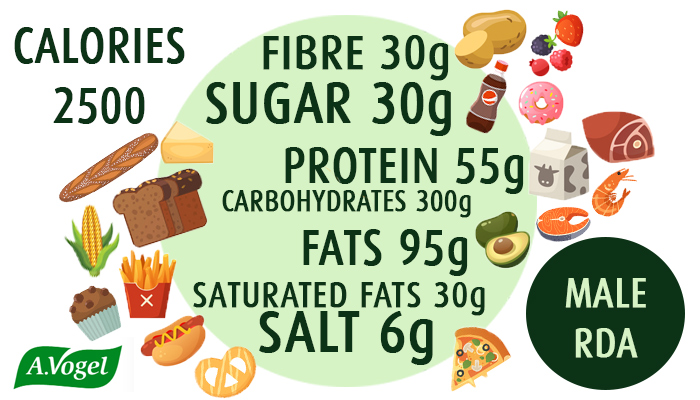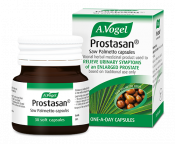What is a healthy diet?
Increasingly, research is showcasing the health benefits of a plant-based diet. The aim of a plant-based diet is to choose as many nature-based ingredients as possible, but not to get too hung up on avoiding meat, fish or dairy altogether. From our mood to our muscles and joints, this has been shown to benefit lots of different aspects of our health.
To better understand what foods to include in a healthy diet, this blog looks at:
- What kind of foods are good for men's health?
- How much should men eat?
- Additional tips for eating well!
What kind of foods are good for men's health?
Thinking more specifically, there are a few foods men could consider increasing their intake of.
1. Spinach, avocado and chard
Not nearly enough men eat enough fruit and vegetables. In the UK, just over a quarter of UK men eat 5 portions of fruit and vegetables every day.1
The guidelines were set at five pieces of fruit and veg a day to maximise the nutrient content of our diets and to encourage us to eat fresh, healthy meals and snacks, rather than lots of processed options. This, in turn, helps to reduce the risk of serious health problems including heart disease and strokes.
Sadly, men are more at risk of heart problems in the first place and there are higher rates of it amongst them. In the UK, 1 in 7 men die from coronary heart disease compared to 1 in 12 women.2 So, any little changes you can make to your diet, including something as simple as eating more fruit and vegetables, is likely to have a positive influence.
Recent research has shown that magnesium, in particular, plays an important role in cardiovascular health.3 As such, magnesium deficiency has been connected to various cardiovascular conditions including hypertension, diabetes and atherosclerosis. So, magnesium-rich foods you may want to hone in on include spinach, avocado, chard and pumpkin seeds.
2. Pumpkin seeds
Not only are pumpkin seeds rich in magnesium, but they are also a good source of zinc. This is an important nutrient for men suffering from the common condition BPH (Benign Prostatic Hypoplasia) as zinc has anti-inflammatory benefits. Also, pumpkin seeds have also been shown in research to have a positive impact on the severity of BPH symptoms.4
Try roasting your pumpkin seeds with a little Herbamare and sesame oil for a healthy snack or check out the pumpkin seed recipes on our site!
3. Beans and pulses
Male diets tend to be high in red meat and men are less likely than women to be vegans or vegetarians.5 Now, eating meat can be part of a healthy diet, especially if you are eating lots of other varied foods alongside it. However, there are problems with eating too much meat, especially red meat.
Excess red and processed meats, such as bacon and ham, can be a risk factor for some cancers, including bowel cancer, as well as high cholesterol. We also know that high cholesterol can be a contributing factor in cardiovascular problems so, in order to reduce the risk of a problem already prominent among men, you could cut down your intake of meat.
To give an idea of what constitutes too much, the Department of Health currently recommends eating about 70g of meat a day. How much does this equate to? Well, just think - your average fry up (with a modest two bits of bacon and two link sausages) has 130g of meat!
A good alternative to red meat is beans and pulses as they, like meat, contain protein, as well as fibre and various vitamins and minerals. Beans and pulses are also incredibly cheap and can be put in just about any dish, from curries and soups to a veggie burger!
4. Oily fish
Another food group that UK men are getting too much of is saturated fats. These should account for no more than 11% of our energy intake, however, men here are more likely to have it take up about 12% of their total intake.6 This may not seem like a lot but it is problematic as too many saturated fats are yet another risk factor for heart-related problems. It may also lead to weight gain, which is problematic as it may lead to an increased risk of hypertension, type 2 diabetes, some cancers and more.
You'll find saturated fats in your processed meats (salami, bacon, sausages etc.) as well as things like butter, cakes and pies.
A healthier option for dinner is an oily fish such as salmon or herring. These contain omega 3 oils, which are really good for the heart. Fish can also be a good source of vitamin D, which we know to be vital for things like mood, muscle and joint health and our skin.
5. Unsalted nuts
Although guidelines state adults should not consume more than 6g of salt a day, UK men are more likely to consume around 9g on average.7 Again, this will impact the heart and the likelihood of strokes. It can also be a risk factor for kidney problems.
One tactic that can quite easily cut your salt intake is to avoid processed snacks like crisps, biscuits, cereal bars and salted nuts. As an alternative, try opting for plain, unsalted nuts. There are so many options to choose from and each offers a host of benefits. Why not make your own trail mix with your desired options? Walnuts, pecans and almonds are just a few to consider.
How much should men eat?
How much you eat will be a very individual thing. For example, you'll consume more if you are very active or have a physical job. Calorie intake can also depend on factors like height and age.
The graphic below offers a basic guide to healthy eating, as recommended by the UK government. However, it is important to remember that there may be some variation from person to person.

Tips for eating more healthily
- Cut your alcohol intake – 14 units a week is the recommended amount. Try having a few alcohol-free days a week as a starting point.
- Think about portion size – see the table below for more information!
- Keep active alongside your healthy diet – there's no point in eating well but staying glued to the sofa all day. Visit our Get Active hub for further advice and information.
- Opt for wholegrain varieties of bread, rice and pasta.
- Speak to your GP if you need further assistance.
What should my portion size be?
| Food group | Recommended daily amount (men) | Ingredient | Individual portion size |
| Carbohydrates | 8 portions | Bread | 1 slice |
| Rice | 2 heaped tablespoons | ||
| Pasta | 2 heaped tablespoons | ||
| Protein | 3 portions | Chicken | Palm-sized piece |
| Eggs | 2 eggs | ||
| Beans/pulses | 3 heaped tablespoons | ||
| Fruit & veg | 5 portions | Salad | 2 handfuls |
| Vegetables | 3 heaped tablespoons | ||
| Fruit | 1 handful | ||
| Dairy | 3 portions | Yoghurt | 4 tablespoons |
| Milk | 200ml | ||
| Cheese | 1 finger-length piece | ||
| Oils | 2 portions | Full-fat butter | 1 tablespoon |
| Spread | 2 teaspoons | ||
| Butter | 1 teaspoon |
References
1 http://healthsurvey.hscic.gov.uk/data-visualisation/data-visualisation/explore-the-trends/fruit-vegetables.aspx
2 file:///C:/Users/Downloads/bhf-cvd-statistics-uk-factsheet%20(2).pdf
3 https://openheart.bmj.com/content/5/2/e000775
4 https://pubmed.ncbi.nlm.nih.gov/25196580/
5 https://www.ncbi.nlm.nih.gov/pmc/articles/PMC5920154/
6 https://www.nutrition.org.uk/healthyliving/lifestages/men.html?limit=1&start=2
7 https://www.nutrition.org.uk/healthyliving/lifestages/men.html?limit=1&start=2





 Looking for a healthier alternative to regular salt? Well, look no further!
Looking for a healthier alternative to regular salt? Well, look no further!

